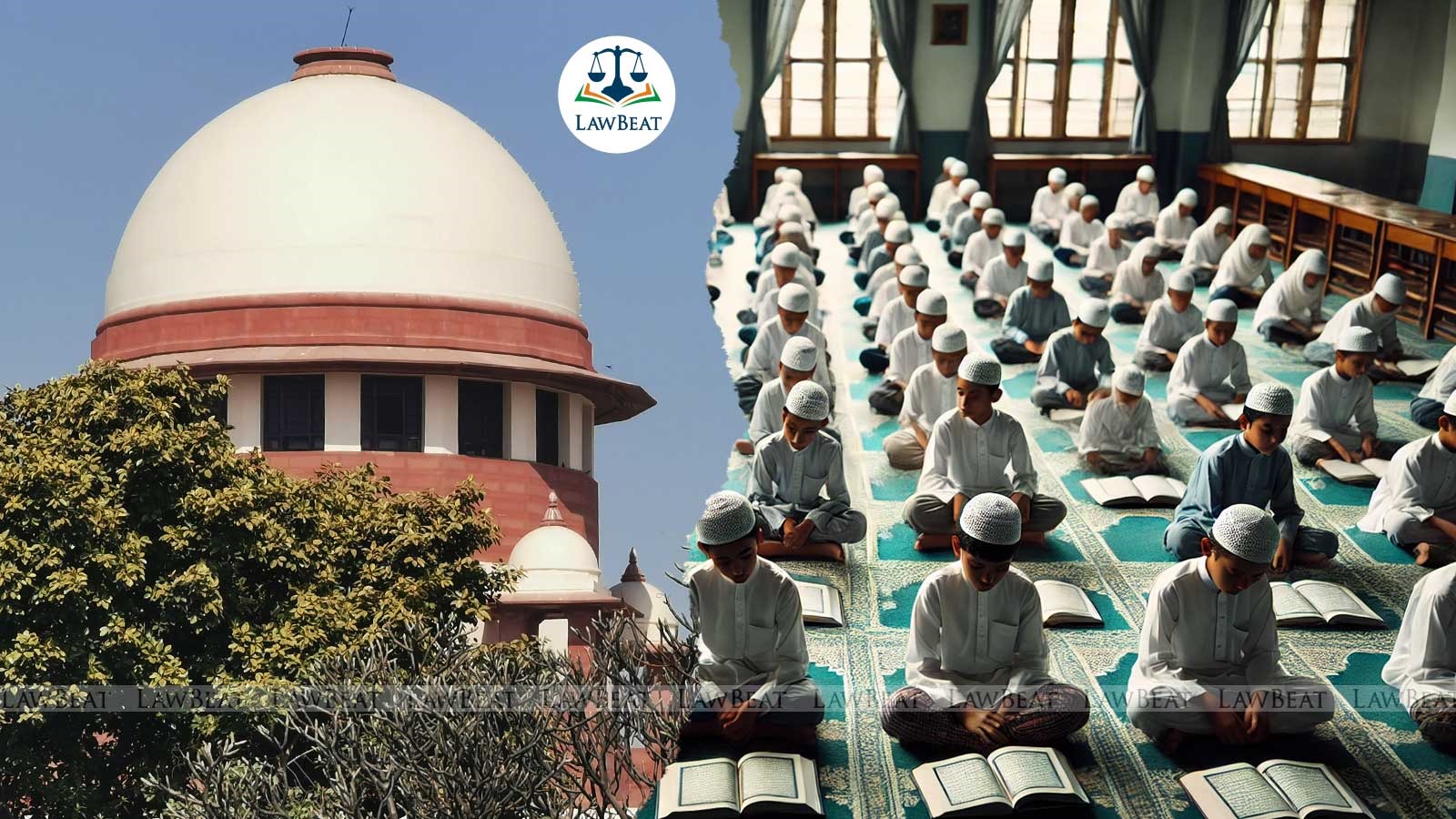"Strict interpretation of Sharia, corporal punishment & sexual assault in Madrasa": NCPCR stands by formal schooling in SC

The NCPCR has stated that the protection of children's Right to Education is of utmost importance as the same has been found its place in Article 21 of the Constitution of India, and "therefore it is necessary that all children up to the age of 14 years be provided with formal schooling as mandated by the Constitution"
The National Commission for Protection of Child Rights has revealed before the Supreme Court that the Madrasa education system severely inhibits the right to education of children in India and has no constitutional basis to subsist in terms of the Right to Education Act or under Article 21A of the Constitution.
“Pramati Educational & Cultural Trust ® & Others vs. Union of India & Others WP (C) No.416 of 2012” while appreciating the spirit of the provisions under the Constitution of India exempted Madrasas from the ambit of the Right to Education Act, 2009, however, the children studying in the Madrasas have never been exempted from the ambit of Article 21A of the Constitution of India in any judicial decision or constitutional interpretation,” the NCPCR has stated
The NCPCR has pointed out that Madrasa's across the country have not only disregarded the basic education system which is standardised for children in India, but various inquiries have revealed the influence of "Darul Uloom Deoband" over them.
"Even though, Darul Uloom Deoband Madrasa was founded in Deoband in district Saharanpur, Uttar Pradesh but it has been impacting people professing Islamic culture and practices across the country and many countries abroad," NCPCR states, adding that the school of thought "has a very strict and conservative interpretation of Sharia,” the NCPCR has claimed
"....the Commission has also taken cognizance of books prescribed for Madrasas through the fatwas issued by Darul-Ullom-Deoband. For instance, a fatwa from Darul-Uloom-deoband (Fatwa: 1165=884/H) answering a question, says that Taqwiyat-ul-Iman is an authentic book. Taqwiat-ul-Iman (Strengthening of the Faith) was written in the 1820s by Indian Islamic preacher Shah Ismail Shaheed," the Commission has averred in its submissions before Supreme Court.
The top child rights protection body has claimed that it has also been alleged by Taliban extremists groups to have been influenced by the religious and political ideologies of Darul Uloom Deoband Madrass which has a looming presence of the Madrasas. The NCPCR has highlighted that children studying in Madrasas "were completely imparted education relying on religious scriptures".
"In the absence of the RTE Act, the students studying in Madrasas are also deprived of the facilities and entitlements which are provided to students studying in regular schools. Thus, denying access to the fundamental right of the children which were protected by the RTE Act of 2009," the NCPCR states
The NCPCR has claimed that corporal punishment, teaching Islamic education revolving around supremacy of Islam and sexual assault against minors and fudging the syllabus to come under garb of mainstream education is commonly reported in Madrasas. Further, it is alleged that Madrasas have been pressurising parents of children to attend Madrasa education.
The Commission has also stated that non-muslim and Hindu students have been studying in Madrasas in large numbers, where only about 16 per cent of the total number of children attending Madrasa education are muslims. The Child Rights body has thus stated that "keeping children from professing any other religion apart from Muslim shall amount to violation of section 75 of the Juvenile Justice Act 2015 (JJ Act 2015). Not only are children's fundamental rights being infringed through grants, but the Juvenile Justice Act 2015 (JJ Act 2015) is also being disregarded".
"It is to be highlighted that this grave misconduct and negligence of providing Madrasa education to non-Islamic children is done under the veil of Article 29(2) of the Constitution of India. That it is humbly submitted that Madrasas serve as the primary institutions for teaching Islamic studies is undeniable. Furthermore, the Madrasa Board is depriving children from their Fundamental Right by imparting religious and Islamic education to children studying in Madrasa," the NCPCR has claimed.
The Commission has also directly averred against the stand of the applicant, Anjum Kadri who has come before Supreme Court against the Allahabad High Court judgment which struck down the act on the ground that the Uttar Pradesh Board of Madarsa Education Act 2004 is on the ground that the act is against the principles of secularism and articles 14, 21, 21A of the Indian Constitution.
In April this year, a bench of CJI DY Chandrachud, Justice Pardiwala and Justice Manoj Misra had stayed the judgment and issued notice in the Special Leave Petition filed challenging the High Court's decision.
CJI while staying the impugned judgment noted that while the State has a legitimate public interest in thinking that students should be provided quality education that would help them to lead a life in the society, it would have to be considered if this requires the jettisoning of the whole Act.
"The object and purpose of the PIL was to ensure that secular education in core subjects such as Maths, Science, Social Studies and History is imparted in institutions run under the Act. The remedy is not to strike down that Act..", the court further noted.
Notably, State of UP had informed the bench that it had accepted the judgment of the Allahabad High Court striking down the Madarsa Act. "There will be no problem in absorbing the students...the matter requires consideration, I am not coming in the way of that..", ASG KM Nataraj had added.
Case Title: Anjum Kadri Vs. UOI
